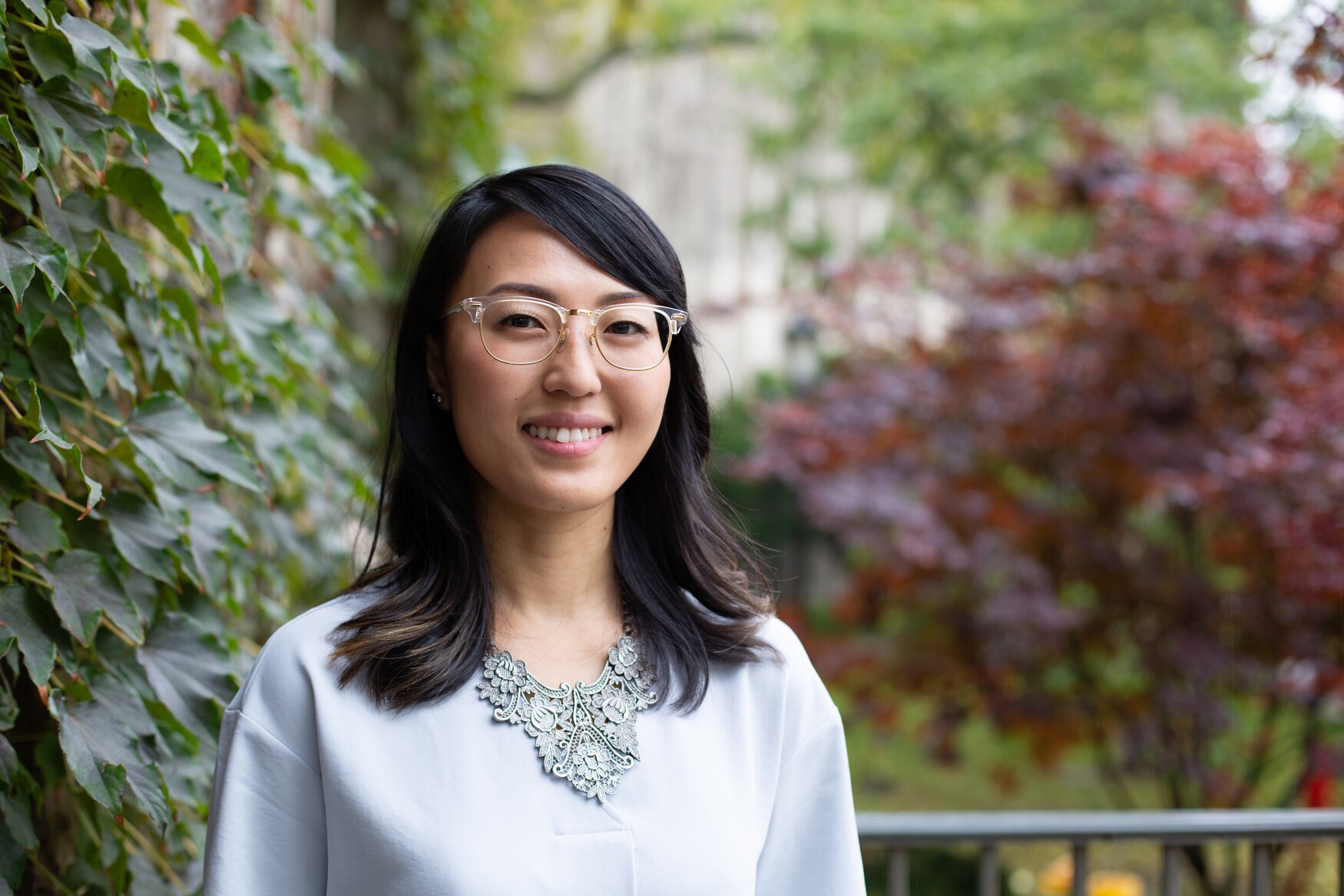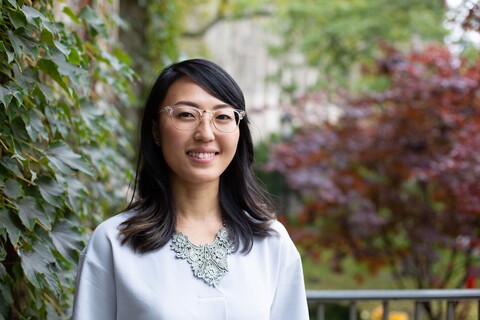Mobile Menu
- Education
- Research
-
Students
- High School Outreach
- Undergraduate & Beyond: Community of Support
- Current Students
- Faculty & Staff
- Alumni
- News & Events
- Giving
- About


What got you interested in the rehabilitation sciences?
I actually started out pursuing a degree in Sociology, but I took so many Health Science/Psychology electives in my first year of undergraduate studies that I ended up switching into an Honours program in Health Sciences with a minor in Psychology. My interest in learning about the human body, brain, and behaviours just blossomed from there. After completing a clinical master’s degree in Occupational Therapy and working as an OT for several years, I began a PhD at U of T to contribute to expanding our knowledge about humans and behaviours.
What’s your area of research?
My research aimed to understand video game addiction better. It’s a fun and engaging hobby for billions of people but there are also some gamers who experience functional impairments and end up seeking treatment. The topic of video games has gained a lot of media attention recently with the rise of e-sports and the World Health Organization formally recognizing it as a disorder. However, it is still an emerging field with a lot of unanswered questions.
What is it that attracted you to studying video games?
I have grown up being around video games. I used to watch my dad play games on DOS like Tetris and Prince of Persia. He then moved onto the Command & Conquer and Final Fantasy series. When I was old enough, I got my own Nintendo console and played basic cell phone games. However, I never considered myself to be a “gamer.”
During my time in undergraduate and master’s programs, I met friends who were “gamers.” Two of them dropped out of school and had a difficult time holding part-time jobs. A lot of their time was spent on online Role-Playing Games (RPGs) like World of Warcraft. This is what prompted me to study video game addiction. When I started this program, I started playing different types of games, especially because I wanted to be immersed in my research and to be able to empathize with what participants were telling me.
What were the biggest highlights of your time at U of T?
During my first year, the School of Graduate Studies Conference grant enabled me to travel to Budapest, Hungary to present at an international conference on behavioural addictions. The connections that I formed at that conference were invaluable. Throughout the course of my PhD, I traveled to conferences in Israel and South Africa to present my work and had the opportunity to present as a guest lecturer to occupational therapy students in the Netherlands.
I subsequently co-wrote an article that debated the merits of the inclusion of gaming disorder in the eleventh edition of the International Classification of Disease (ICD-11), with researchers I met through these conferences. This paper gained intellectual signed support from over 30 scholars worldwide.But, of course, the biggest highlight of all was successfully defending my thesis!
What have been some things that have helped you through challenging times?
Depending on the situation, I had several tactics in my arsenal. First, I have always loved playing sports and staying active. It helps keep me healthy and relieve stress. I was a part of my department’s volleyball team—the Rehabiligators! Second, if I needed to reach out to someone, I had other PhD students, my mentors, and my very supportive family. The last tactic – journaling – I did not discover until about halfway through my studies. I found it to be a good way to unpack my day, reflect on my goals, and also improve my writing skills.
What’s next for you?
I will be completing a post-doctorate at the Centre for Addiction and Mental Health (CAMH) with co-supervisors from CAMH and Yale University. My goals during this post-doc position are to continue developing my quantitative and qualitative research skills while working in the field of video gaming addictions, strengthen my writing and communication skills, continue participating in behavioural addition work at an international level, and gain experience with developing funding and grant applications. Additionally, I will remain engaged with my profession as an occupational therapist. My role as an Assistant Clinical Professor of Occupational Therapy (Adjunct) at McMaster University will commence in January.
Do you have any advice for incoming students?
This is a tough question. Every student’s situation is different, so I can only answer this from my own perspective. One piece of advice I would have given to myself as an incoming student, is that while it is good to start the program with a plan, it is okay for them to change…several times. This advice would have been really helpful whenever I encountered setbacks or amendments throughout the course of my program. I think I approached entering the PhD program with a mindset that worked for me: I aimed to enjoy my time in graduate school while working, developing and growing professionally.
Faces of U of T Medicine introduces you to some of the interesting people studying in the Faculty of Medicine. From advising political leaders to providing care to Toronto’s most vulnerable populations, our students are making an impact on communities at home and around the world.
Do you have an interesting story to share? Contact us at medicine.communications@utoronto.ca.